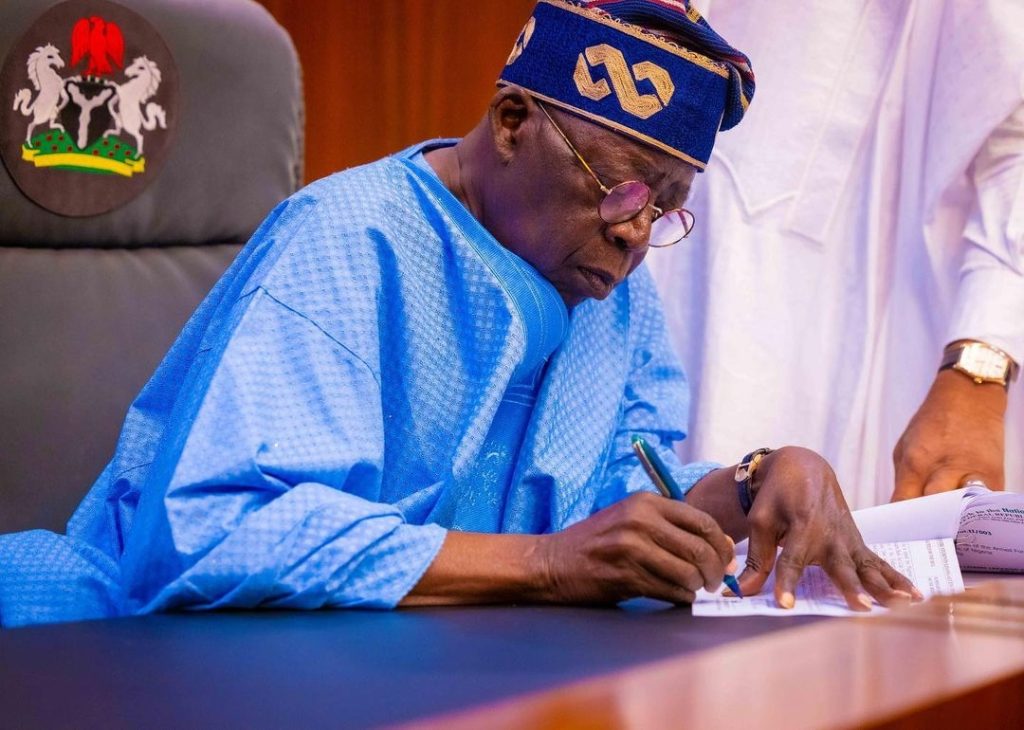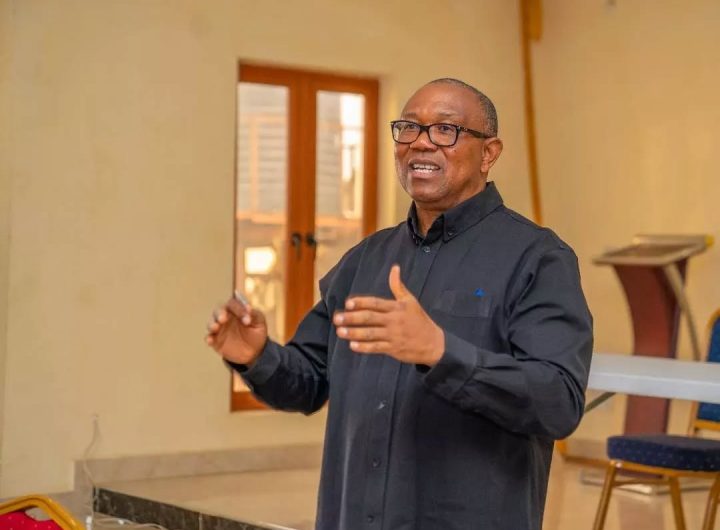
Tinubu announced the new national minimum wage after a meeting with labour leaders on Thursday/Instagram @officialasiwajubat
Tinubu agreed to review the new national minimum wage in three years.
After months of locking horns with the organized labour, President Bola Tinubu has agreed to approve a new national minimum wage of ₦70,000 for civil servants.
President Tinubu also agreed to a new limit of 3 years for the review of the national minimum wage.
According to a statement released by Bayo Onanuga, the Special Adviser to the President on Information and Strategy, the new national minimum wage was agreed by the president and the organized labour after a meeting on Thursday, July 18, 2024.
“President Bola Tinubu has approved a ₦70,000 minimum wage for Nigerian workers with a promise to review the national minimum wage law every three years,” the statement said.
“President Tinubu also promised to find ways to assist the private sector and the sub-nationals to pay the minimum wage.
“President Tinubu announced the decisions at the meeting held with leaders of TUC and NLC on Thursday in Abuja, the second time the parties met in 7 days.
“The Labour leaders applauded President Tinubu for the fatherly gesture as the President also promised to use his discretionary powers to meet the demands of university unions demanding unpaid 4 months salaries.”
The need for the review of the national minimum wage became paramount after the president announced the removal of fuel subsidy, plunging the economy into inflation.
Related: President Tinubu Bans The Use Of Petroleum-Dependent Vehicles For Government Officials
Initially, the Labour Union requested ₦250,000 as the new minimum wage, but the government proposed ₦62,000.
President Tinubu was forced to directly negotiate with the organized labour, and a meeting was set up for July 11.
After the meeting, the union insisted on their initial demand, but the turn of things on Thursday means both parties have reached an agreement.
Critics have questioned the president’s commitment towards the economic growth of the country on the basis that he has not cut down on the cost of governance and spent heavy resources on projects that are not necessary, such as the construction of a vice presidential residence.

 Trump Warns Putin Of Tariffs Over Ukraine War
Trump Warns Putin Of Tariffs Over Ukraine War  Peter Obi Condemns National Assembly’s Vote On State Of Emergency In Rivers State
Peter Obi Condemns National Assembly’s Vote On State Of Emergency In Rivers State  Pornographic Actor Anna Polly Falls And Dies From Hotel Balcony While Filming
Pornographic Actor Anna Polly Falls And Dies From Hotel Balcony While Filming  NYSC Members Set To Receive Monthly Allowance Of 77,000 From March
NYSC Members Set To Receive Monthly Allowance Of 77,000 From March  Why Trump Kicked Ukrainian President Zelenskyy Out Of The White House
Why Trump Kicked Ukrainian President Zelenskyy Out Of The White House  Zoe Saldaña Is The First Dominican-American To Win An Oscar; See All The Winners
Zoe Saldaña Is The First Dominican-American To Win An Oscar; See All The Winners  Commercial Motorbike Rider Fatally Stabbed By Wife Over Financial Dispute
Commercial Motorbike Rider Fatally Stabbed By Wife Over Financial Dispute